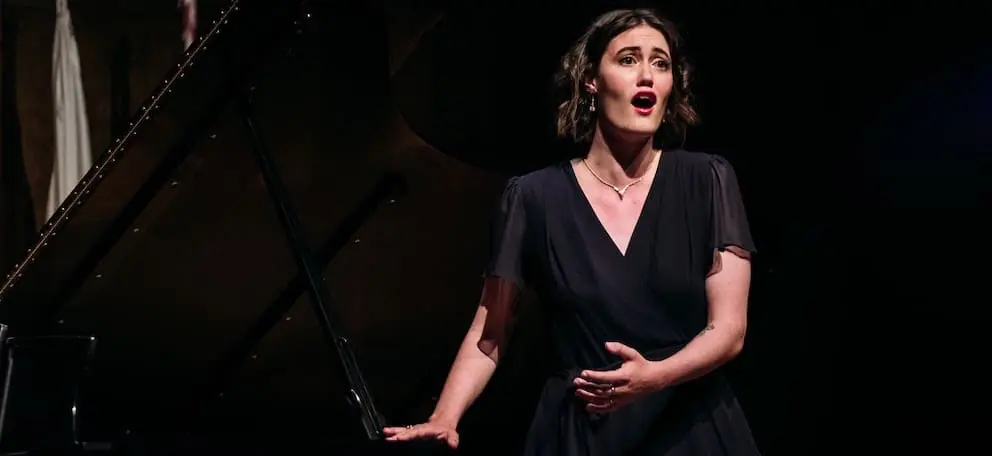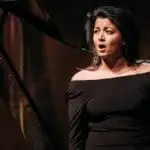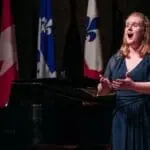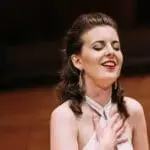Of course it’s not hard to say who was more exciting to listen to on Sunday afternoon, though this has only a slight reflection on their talent or potential importance as singers. Murray sang only Mahler, Rachmaninov, and Hoiby and he made up for this lack of variety by singing for as long as the other two finalists put together. It was a convincing argument, if anyone had any doubt at this point, that he is a subtle, sensitive, and thoughtful artist. The two Mahler lieder from “Des Knaben Wunderhorn” were lovely, with an exquisite melisma on “Heide” in “Wer hat dies Liedlein erdacht?” But I think his program needed more emotional variety (and a stopwatch) in order for him to win. It was too comfortable; only Rachmaninov’s nostalgic “Do Not Sing, My Beauty” and Hoiby’s setting of Whitman’s poem “I Was There” hinted at some greater range of feeling.
My choice would be between the two sopranos, who are almost as different as they could be, though they both picked clever programs. Burns returned to her first round form and loaded her tiny shotgun with potpourri—five languages, ten composers, thirty minutes—while Wohlgemuth seemed to be playing the long game. She sang the kind of leisurely, long-lined romantic program that she had avoided in the semi-finals as if to say, listen I can do that too.
She certainly can. She has a grand voice with a burnished lower register and she’s capable of ankle-twisting turns of mood. Her “Hexenlied” was captivatingly naughty, embers flying all over the place, and she followed it with Strauss’s “Drei Lieder der Ophelia” and then the relentless melancholia of Bachelet, Schumann, Brahms, etc. etc. Sinking deeper and deeper into this marsh I was grateful to her and pianist Jinhee Park for making it as interesting as possible. There is a fizz between them that I didn’t feel with any of the other competitors. Her finale was very smart; two short songs by Obradors that shattered the funk and left us with her beaming smile, holding nothing back.
Burns is the more unusual talent to my jaded ears, and her whole program was characterful and vivid, almost without exception. I just wonder if it had enough explosions in it. Joyful and glowing in Strauss’s “Muttertändelei”, she turned wily in Judith Weir’s “Lady Isobel and the Elf-Knight”—a female composer? In a competition?!—and heartbreaking in a spacious and darkly shaded performance of Macmillan’s “Ballad”. I saw someone cry. Wolf’s “Waldmädchen” was too subtle a finale compared to Wohlgemuth’s, but Burns as a dancing and teasing forest nymph—here a fire blazing, there a deer leaping, there a bird winging—could be the anthem of this shapeshifting singer.
I will be content if either of them wins. We’ll find out on Thursday night after the aria finals.
Livestream the CMIM competition right here or on our Facebook. View the full schedule here.
Opera Canada depends on the generous contributions of its supporters to bring readers outstanding, in-depth coverage of opera in Canada and beyond. Please consider subscribing or donating today.















